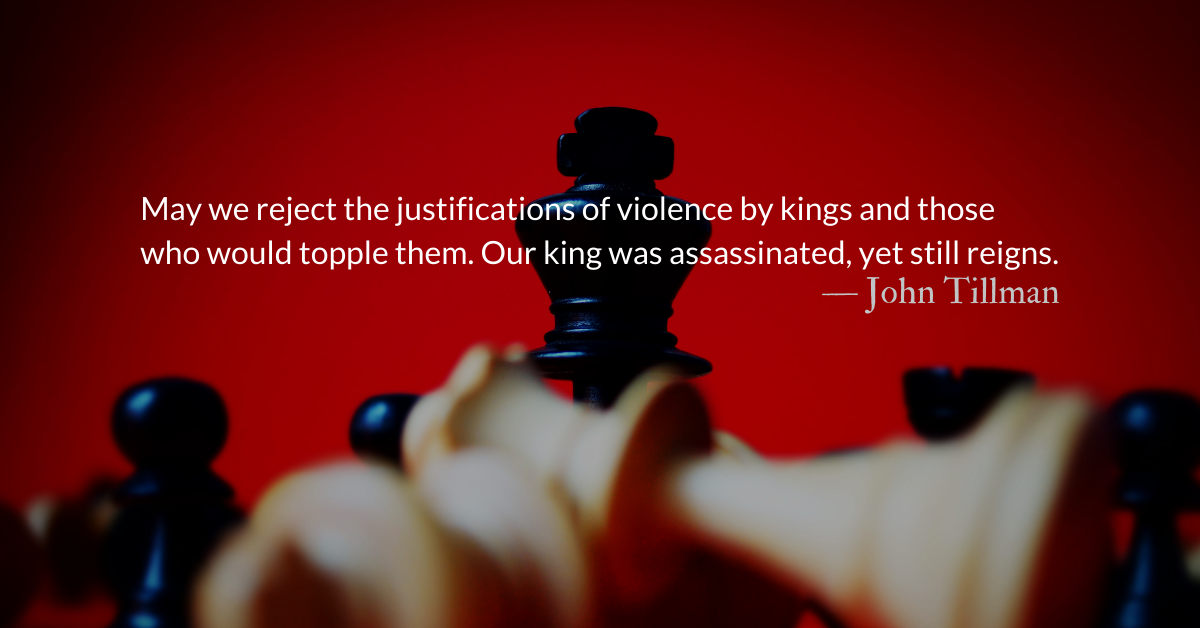Scripture Focus: 2 Kings 16:8, 10
8 And Ahaz took the silver and gold found in the temple of the Lord and in the treasuries of the royal palace and sent it as a gift to the king of Assyria…10 Then King Ahaz went to Damascus to meet Tiglath-Pileser king of Assyria. He saw an altar in Damascus and sent to Uriah the priest a sketch of the altar, with detailed plans for its construction.
Reflection: The Facade of Worship
By Erin Newton
You can’t have your cake and eat it too. The old idiom means “to have all the benefits of a situation when, in fact, having one thing means that you cannot have the other.” I want good grades without studying. I stay up late watching movies but hope to feel well-rested in the morning. I want companionship but never invest in others. Unfortunately, I fall into this trap in small, mostly insignificant ways. There are some, however, who have gone too far.
Ahaz became king of Judah and quickly made an alliance with the Assyrians. With threats surrounding Judah, Ahaz welcomed the influence of other powers. He earnestly sought their approval by robbing the Temple and handing over the riches. He lingered with the Assyrians and was enthralled by the temples for foreign gods.
Judah already had a temple for worship. The divinely ordained Temple in Jerusalem was blessed with God’s continual presence. But Ahaz was obsessed with Assyrian power and prestige so much so that he was willing to try to hold both worlds in one hand. He kept the Temple in Jerusalem and commissioned another Assyrian-style altar to be built. He kept the divinely ordained rituals but transferred those to his new altar.
Ahaz attempted to retain the façade of worshipping God while adopting the ways of the world. He was either weak or wicked but in either case, he failed to see that worshipping God is incompatible with other worldviews. He could not have God and other deities too.
Not everything conflicts with faith. I can be a vegetarian Christian or a pro-life Democrat or an old-earth conservative. Our faith does not stand at odds with everything. There is, however, a difference in building two houses of worship. My profession to love Jesus cannot stand alongside the desire to give my whole heart to a cause, a party, or a person.
Jesus warned that no one was able to serve two masters. “Either you will hate the one and love the other, or you will be devoted to the one and despise the other.” (Matthew 6.24) Ahaz despised God by continuing to rob the Temple and sacrificing his own children. What pursuits consume our thoughts? What platforms are we willing to sacrifice for that compete with the sole worship of God? Some things must be secondary in life; God must be primary.
Divine Hours Prayer: A Reading
Concerning the commandments, Jesus taught us, saying: “This is the first: Listen Israel, the Lord our God is the One, only Lord, and you must love the Lord your God with all your heart, with all your soul, with all your mind, and with all your strength. The second is this: You must love your neighbor as yourself. There is no commandment greater then these.” — Mark 12.29-31
– From The Divine Hours: Prayers for Summertime by Phyllis Tickle.
Today’s Readings
2 Kings 16 (Listen – 3:46)
Titus 2 (Listen – 2:01)
Read more about Muscle Memory
Fearful and uncertain, he looked for answers. Just as he was raised, he avoided God and looked to the idols.
Read more about Solomon’s Cheating Heart
What “Temple” have you built with the time and resources of your life?
Who is that Temple dedicated to?











